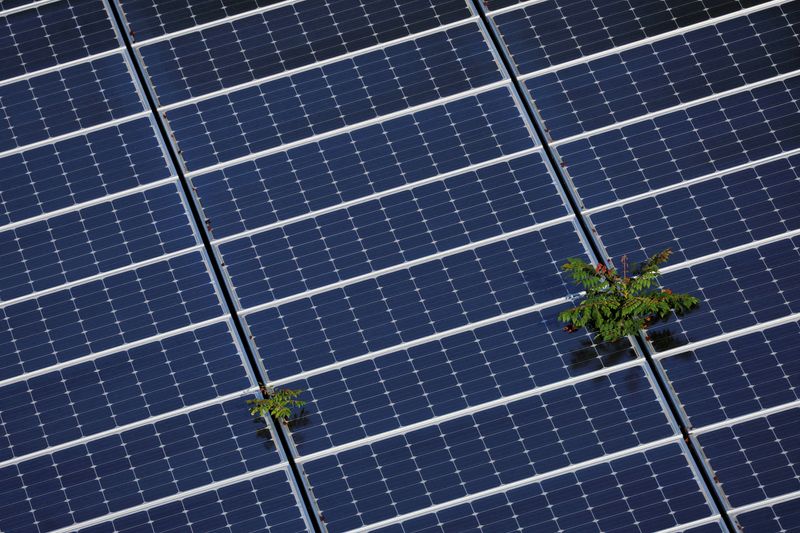US approves reforms to speed clean energy grid connection
2023.07.27 13:35

© Reuters. FILE PHOTO: Plants grow through an array of solar panels in Fort Lauderdale, Florida, U.S., May 6, 2022. REUTERS/Brian Snyder/File Photo
By Valerie Volcovici and Nichola Groom
WASHINGTON/LOS ANGELES (Reuters) -U.S. regulators on Thursday unanimously approved proposals to speed up the connection of new power projects to the electric grid, reforms that could ease a growing backlog of requests from renewable energy developers and deliver more clean energy to consumers.
Long waits for transmission interconnection have slowed efforts to ease wild pricing and tight power supply in some markets, and hobbled the deployment of big solar and wind projects that the Biden administration wants built to combat climate change.
The Federal Energy Regulatory Commission’s (FERC) final rule will shift the approval process from a “first come, first served” approach to a “first ready” approach – meaning projects that are prepared with land rights and permits could move ahead of developers that are not.
New renewable generators and battery storage resources currently must go through a complex process before they can be connected. That process, which includes multiple studies of how their projects will affect the grid, can be costly and time consuming.
The new rule will impose financial and other conditions to secure a place in the interconnect queue and establish penalties for grid operators if they fail to complete interconnection studies on time.
“This rule is a major first step in our journey to addressing transmission reform,” FERC Chairman Willie Phillips said at a press conference on Thursday following the vote.
The unanimous vote comes nearly one year after landmark legislation aimed at boosting renewable energy projects called the Inflation Reduction Act (IRA) became law.
An April analysis by the government-funded Lawrence Berkeley National Laboratory (NYSE:) found that the average interconnection process takes five years, more than double the time than in 2008.
The interconnection rule is part of a broader package of reforms FERC is working on in coming months to help hasten the deployment of renewable energy and storage. It is also seeking to finalize proposals this year to improve planning and cost allocation for transmission lines.








